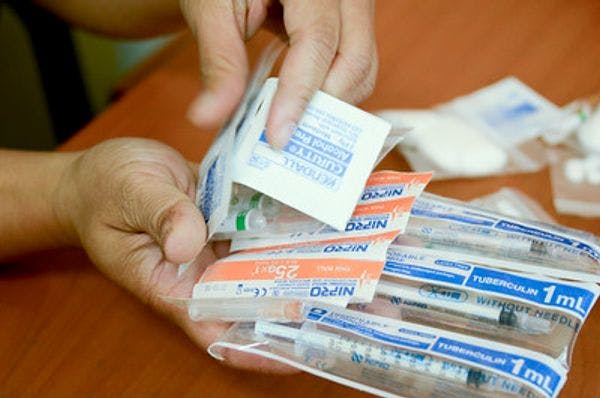TS-TH005 World Bank - Flickr - CC BY-NC-ND 2.0
Estudio subraya el valor indisputable de las organizaciones de reducción de daños en Ucrania
El análisis muestra una correlación entre acceso a servicios de reducción de daños y adopción de la terapia antirretroviral. Más información, en inglés, está disponible abajo.
People who inject drugs who are in contact with harm reduction organisations are more likely to use condoms and sterile needles, and be on opioid substitution therapy or HIV treatment.
An analysis of five nationwide surveys conducted in Ukraine over eight years has found that people who inject drugs who are reached by harm reduction non-governmental organisations (NGOs) have consistently better outcomes relating to HIV prevention, testing and treatment.
These better outcomes were seen despite NGO clients being more marginalised as they are more likely to have been imprisoned, be economically more impoverished and inject more frequently.
A greater proportion of NGO clients were found to be living with HIV than non-NGO clients – with prevalence high at 29% – but they were more likely to be on treatment than those who had not received NGO support.
Data from national surveys carried out by the Alliance for Public Health, one of the largest harm reduction NGOs in Ukraine, was used for the analysis.
The first survey, conducted in 2009, involved around 3,900 people. Surveys in 2011, 2013 and 2015 involved between 9,000 and 9,500 people each, and the final survey in 2017 involved around 10,000 people.
All survey respondents had injected drugs in the last 30 days, were aged 14 or above and lived in one of 31 cities, covering all of the country’s regions. Roughly 80% of respondents were men and 20% were women.
Across all surveys, around one‐third of those questioned were NGO clients, a level that remained stable each year.
